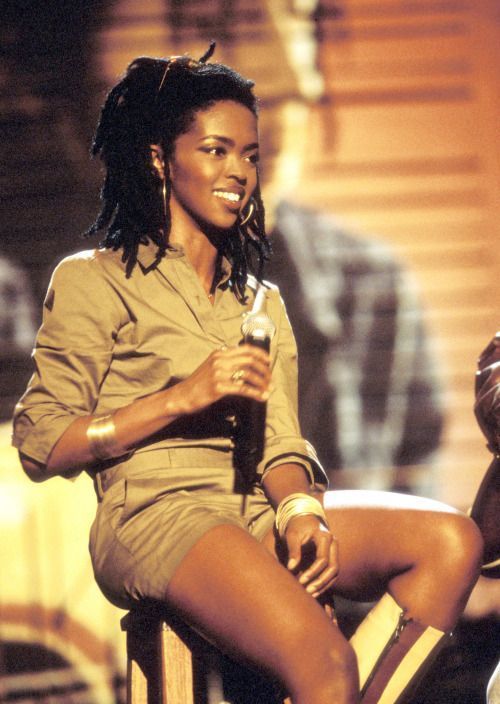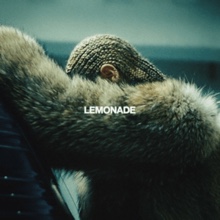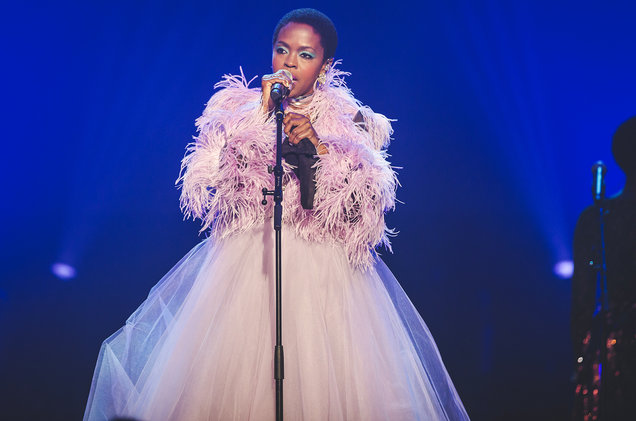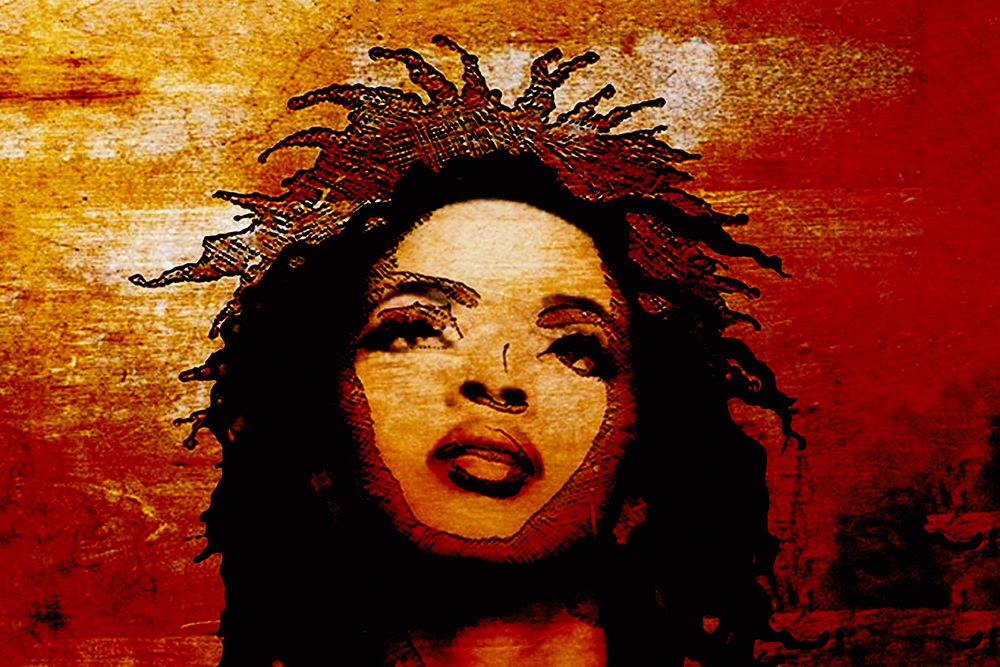FORGIVE THEM FATHER

Lauryn Hill performing live
It is no secret that the music industry pioneered as a boy’s club. Men still predominate as producers, managers, artists, and CEOS of labels. Only 22% of songs on Billboard’s Hot 100 were created by women from 2012 to 2017. An even greater disparity exists between men and women producers. Male musical engineers outnumber female 49 to 1. However the systemic patriarchy has not silenced women but has instead coerced them to work harder. It is a norm, many are refusing to accept.
To discuss both the gender disparity and success of women in the music industry, I interviewed Alisha Cooper, local promotion coordinator for Republic Records. During her career, Ms. Cooper has worked alongside Wendy Williams and Charlamange Tha God. She believes her journey and success has been shaped by the key relationships she has formed from networking. After receiving her degree in Public Communications and Public Relations, she went on to become an intern at Radio One Richmond with a part-time role

Mixing and Mastering Equipment Used by Engineers at Republic Records.
as a Board Operator. Now at Republic Records, her day to day includes coordinating with artists’ management to set up press related events, creating service blast templates to promote new releases, and assisting with the backline materials of artist performances.
However, her work never ends because after he tiresome days, she returns home to her 9 year old daughter Kyla. As a woman with a family, she is well aware she has to work harder than men and childless women. Women’s ability to simultaneously build a career and have a family is frequently called into question, but especially in the music industry. She would often find herself “going the extra mile to build relationships” to prove she can “run a territory” which men with or without families typically do not have to endure. To make matters adverse, as a black woman, she often finds herself fighting against the hyper-sexualization and the mad black woman stereotypes. There is an ongoing battle between being yourself and fear of perpetuating stereotypes. Nonetheless, she is proud to say that her formidable work ethic is what has gotten her far despite the obstacles of her intersectionality of being both black and a woman. Her story is not unfamiliar though whereas many black women have to combat defaming stereotypes.

Snoop Dog with women in chains and leashes at the MTV music awards.
The undermining of black women’s abilities because of crippling stereotypes is highlighted in Rana A. Emerson’s “Where My Girls At?: Negotiating Black Womanhood in Music Videos” where she explores how black women in the 1990s were largely accepted for their sexual appeal, but their talents and abilities went unnoticed. Their exploitation was normalized because of the anti-womeness in the music industry. However, in the face of adversity, artists like Lauryn Hill and Erykah Badu have changed the narrative for female producers and performers by combatting decades of exploitation and isolation. This corroborates with Tricia Rose’s Black Noise where she underlines how black women, “creatively address questions of sexual power, the reality of truncated economic opportunity, and the pain of racism and sexism” (Rose 146). Inherently black female artists gain agency by creating art out of their marginalization and rising above social limitations. This was seen in Lauryn Hill’s The Miseducation of Lauryn Hill where she celebrates black womanhood and even condemns misogyny through her lyrics.
 Contemporarily, Beyonce’s Lemonade corroborates with the profound messages of Lauryn Hill because she too illustrates divinity in the female black identity. She alluded to Dr. King’s ideology of integration forcing black people into a burning house, she embraced inherent black features ,and made a call for formation amongst black women. She made beauty out of hardship which many black female artists have done through their music. Despite the constant battles for equality, Ms. Cooper believes the exclusion of women has inspired the “natural nurtures” to come together and “get deals done” instead of coercing them into silence. The relationships she has built alongside these women, who she describes as her “key supporters” is the biggest fundamental to the business. Women are no longer fighting for a seat at the table. They are creating their own.
Contemporarily, Beyonce’s Lemonade corroborates with the profound messages of Lauryn Hill because she too illustrates divinity in the female black identity. She alluded to Dr. King’s ideology of integration forcing black people into a burning house, she embraced inherent black features ,and made a call for formation amongst black women. She made beauty out of hardship which many black female artists have done through their music. Despite the constant battles for equality, Ms. Cooper believes the exclusion of women has inspired the “natural nurtures” to come together and “get deals done” instead of coercing them into silence. The relationships she has built alongside these women, who she describes as her “key supporters” is the biggest fundamental to the business. Women are no longer fighting for a seat at the table. They are creating their own.
When Ms. Cooper previously worked for Caroline Records, a full-service label, she worked alongside all women with the exception of one male. As they achieved their silent successes, women like Rihanna, Nicki Minaj, and Beyonce were topping the charts for the world to see. These phenomenons have expanded their empires beyond the music industry by becoming, “Creators of fashion lines, owning [their] masters, and grossing millions of dollars from touring”. There have also been unprecedented wins behind the scenes for women who have climbed to the top by becoming top executives. You have Sylvia Rohne, chairman and CEO of Epic Records, Ethiopia Habtemariam President of Motown Records, Latrice Burnette Executive VP and General Manager of Island Records. On the contrary to the success of these women, the fact of the matter is men still dominate both outwardly and behind the scenes.
According to a New York Times article entitled “Gender Diversity in the Music Industry? The Numbers are Grim” by Ben Sisario, “Of the 899 individuals who have been nominated for the last six Grammy ceremonies, 90.7 percent were men and 9.3 percent were women” (Sisaro). Numbers are even more shocking for female producers. The study concluded, “female producers- the people most responsible for the sound of pop music — are even rarer, at just 2 percent in a subset of 300 songs across this same period” (Sisaro). This is evident in how Ms. Cooper is not aware of any female producers who currently work for Republic Records. The larger problem other than the exclusion of women in engineering is the unchallenged male dominance by their male counterparts. The numbers have been and still are complacent for female producers without evidence of an upward trend. Producing and engineering are regularly referred to as a man’s territory illustrating the undermining of women’s talent and creativity. Still, shockingly, no woman has ever won a grammy for producer of the year. According to Paula Wolfe’s “A Studio of One’s Own: Music Production, Technology, And Gender”, “the issue arises because those technological tools have been gendered masculine, as has technology in many non-creative fields” (Wolfe). Essentially there is a low representation of female producers because of lack access; their womanhood dissociates them with activities outside of the domestic norms.

Lauryn Hill performing live.
Ms. Cooper noted how women are most prominent as performers. The fact that women are more seen than heard comments on society’s patriarchal stratification that is actively working to silence women. Being watched for mere entertainment reinforces the ideology of domesticity because women are merely accepted for their pleasing of others. However accessibility for producers historically was tainted by three things according to Joseph G. Schloss “Making Beats: The Art of Sample- Based Hip Hop”. The first being financial concerns and overall doubt if they will take engineering seriously. The second being one does not want to move on to learning a new technique until they have mastered the first one. Finally, “there is a broader belief that an individual working through hip hop history can develop a deeper understanding of the more abstract philosophical and aesthetic foundations of the form” (Schloss 43). Fundamentally, all producers generally faced hardships because of lack of accessibility and mentorship; historically becoming skillful in engineering was difficult and so was accessing equipment.
However, the obstacles for women have adversely heightened because of gender norms in the face of technology; especially black women whose intersections of being both black and women are crippling in a sexist and racist society.
This though does not mean women are not working towards eradicating those gender stereotypes. Ms. Cooper was no novice to the accomplishments of the prolific Lauryn Hill, Erykah Badu,

Missy Elliot on the cover of her song “Mr. DJ”
